Hydrophobia: what is it and how to get rid of it?
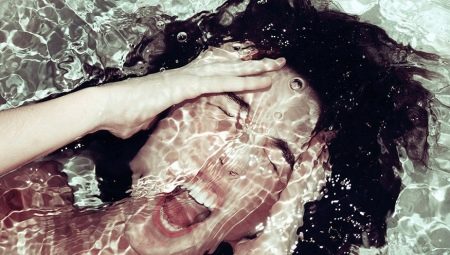
Water is an amazing element, it attracts and bewitches some, and repels others. There are also people who experience panic in front of water. Hydrophobia is considered a fairly common type of pathological fear.
Description and varieties
Hydrophobia or aquaphobia (both names are equally acceptable) - it is a mental disorder that manifests itself in an irrational fear of water... Doctors of antiquity drew attention to the fact that people and animals with rabies show signs of fear of hydration, because of this, the fear of water has been called for a long time rabies.
Later, a deadly infectious disease caused by a virus of the genus Rabies was nevertheless proposed to be separated, and the name "rabies" remained with it. And the mental disorder associated with hydrophobia became known as hydrophobia.
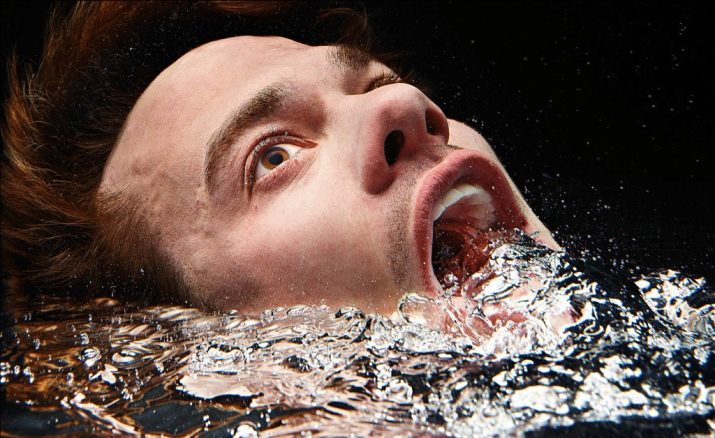
Fear of big water, in general, is characteristic of humanity, because water not only makes it possible to survive in a physiological sense, but also can take a person's life. That's why this phobia is usually attributed to the ancients, directly related to the work of the deepest parts of the brain that have survived since the dawn of mankind - the limbic system.
Since the sources of water and its type can be different, then there are quite a few types of fear. This includes the fear of drowning, the fear of the bathing process. Some are afraid only to enter the water or swim, but they can calmly contemplate the bodies of water and the seas.
Some people cannot even look at the reservoir without shuddering. A hydrophobe can be afraid of large water - the sea, lakes, rivers (most often people do not know how to swim), and can be horrified by the sight of water in a bath or a glass. Sometimes fear suggests the need to swallow water, drink. Some are afraid of clear water, while others are afraid of muddy water. Some are horrified by cold water, others by hot water. There are aquaphobes who are afraid of everything at once.
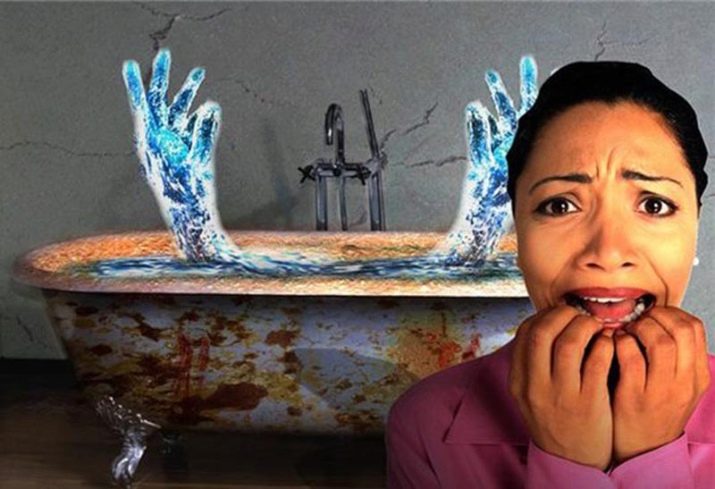
Some are afraid only in situations when they find themselves in the vicinity of water or in water, others are constantly anxious, because water surrounds us everywhere - at home, on the street, on vacation and at work.
For a long time, psychiatrists doubted whether this fear should be considered a disease, and therefore in 1940, when the "Psychiatric Dictionary" was compiled, hydrophobia was not included in it. But the omission was corrected in 2004 when the lists of mental illness for the eighth edition were revised. And today such a diagnosis exists, it is listed in the International Classification of Diseases (ICD-10) under the code F-40 (phobic mental disorders).
A mental disorder is characterized by uncontrollable fear that is beyond the reach of common sense and human willpower... The hydrophobe understands perfectly well that his fear can be ridiculous, unjustified (what's wrong with a glass of water?), But he cannot control himself as soon as he gets into circumstances or a situation that seems dangerous to him (even if it's just the need to drink a glass of water ).
Do not confuse hydrophobia with a panic fear of depth. The fear of deep water is called batophobia, and it is more widespread (up to 50% of people on the planet are afraid of depth to one degree or another). However, batophobes are only afraid of depth (this is a kind of spatial phobia); you will not scare them with water in a glass or basin.
A real aquaphobe often does not remember when he first had fears associated with water. Some are sure they were born with this trait. Often, the fear of water or the circumstances and actions associated with it is accompanied by obsessive thoughts (obsessions), and sometimes compulsive disorder (the need to perform certain actions-rituals).

Hydrophobia is an independent ailment, and sometimes it is only one among other symptoms of mental illness, for example, with bipolar disorder or schizophrenia.
History knows many famous hydrophobes. An American actress suffered from such fear. Natalie Wood. All her life she was afraid of open natural reservoirs and eventually drowned off the island of Santa Catalina in California.
Afraid of water Hollywood diva Michelle Pfeiffer, singer and model Carmen Electra. In ancient times, the Byzantine emperor suffered from hydrophobia Heraclius the First. As a result, he became hostage to his fear and received several crushing defeats from the Arabs only because he could not, during a tactical retreat, decide to cross the Bosphorus.



Afraid of water and Woody Allen. The American actor and filmmaker in his fear has reached the extreme limit - he has several phobias at the same time, obsessive-compulsive syndrome.
Reasons for the appearance
Hydrophobia can appear and develop both in childhood and in adulthood. In children, the cause may be negative experiences, for example, water getting into the ears and eyes, if the child falls in the bathtub, sips water. Subsequent bathing may already be accompanied by protests, which parents often mistake for pampering and ordinary whims, without attaching due importance to this. Not being resolved, the baby's problem is aggravated, and persistent hydrophobia is formed.
Any type of hydrophobia is based on a natural component - the instinct of self-preservation. It is normal to be afraid of water within reasonable limits. This does not allow us to mindlessly dive anywhere, which means it increases survival. But hydrophobia is abnormal already because the manifestations of fear are hypertrophied, a person cannot control them.
Most often, according to psychiatrists, it is based on a certain situation that turned out to be traumatic for the psyche, for example, unsuccessful bathing, awkward and incorrect attempts to learn to swim, falling into a natural disaster (flood) zone, seen a film about such situations, which left an indelible mark on the psyche.
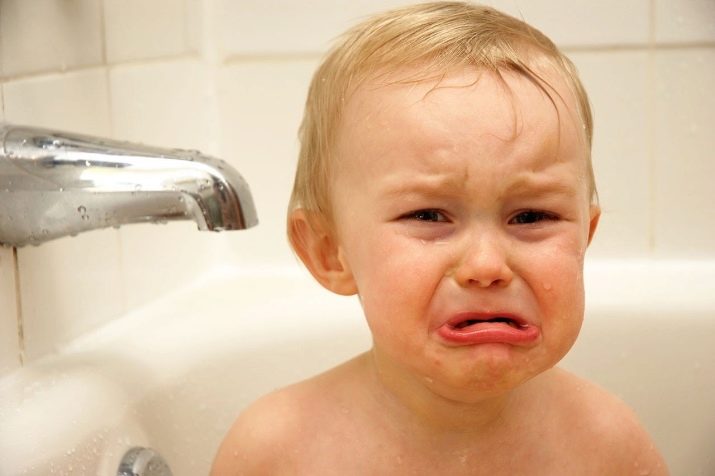
If this happens during childhood, then the likelihood that the fear will take hold and become habitual is higher. The psyche of an adult is more resistant to such events.
It is not necessary that the person himself saw or became a participant in stressful events associated with water. Perhaps he heard about something that left a mark in the subconscious, for example, he learned that someone he knew had drowned. Also, the child can copy the parents' behavior model - if mom or dad is afraid of water, then the likelihood that the child will suffer exactly the same phobia increases significantly.
Characteristics of character and personality contribute to hydrophobia, for example, most often this phobia develops in people suspicious and anxious, worried about any reason, impressionable, unable to withstand stress. For such people, not only personal or someone else's experience, but also mystical experience may well become a starting mechanism for the development of mental disorders - the fortuneteller predicted death from water, the horoscope does not recommend contact with the water element, etc.

Symptoms
The symptoms that are characteristic of hydrophobia are characteristic of most other phobic disorders. They can be divided into two groups - psychological and vegetative.
Psychological. Before any water-related event is supposed to take place, the hydrophobe may experience a sense of anxiety, which gradually builds up, develops and can disrupt sleep and appetite. Obsessive negative thoughts appear that are spinning in the head, anxiety increases. At the moment of a sudden hit in a frightening situation (for example, a hydrophobe was thrown into water or doused with water), a panic attack is possible.
With her, the patient completely loses the ability to control his behavior, the situation around. It is for this reason that many aquaphobes drown, even if they know how to swim, suddenly finding themselves in the water.
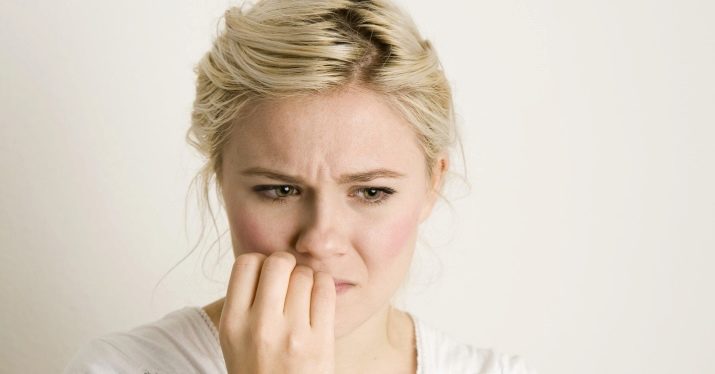
- Vegetative. If the situation is recognized by the brain as dangerous, an adrenaline rush occurs. Physical symptoms are associated with this: dizziness, weakness in the legs, surges in blood pressure, a sharp appearance of cold sweats, discomfort in the stomach, sometimes nausea and vomiting. Breathing becomes shallow, shallow, pupils dilate, tremors appear. Loss of consciousness, balance is possible.
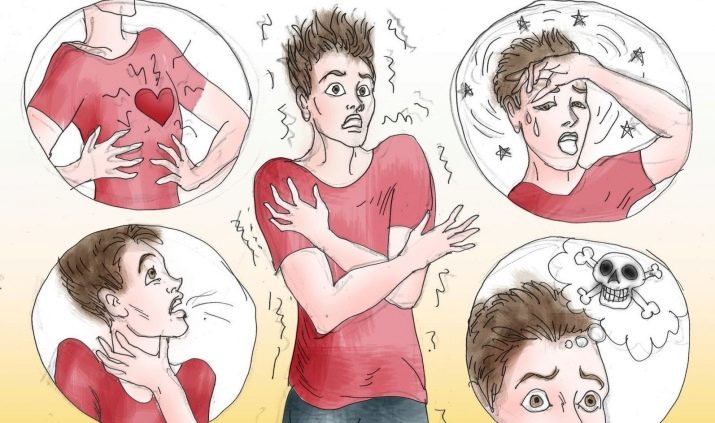
After a panic attack, a person feels tired, empty. He is very afraid of becoming the object of public condemnation if the attack is repeated in public. Therefore, aquaphobes begin to avoid situations in which this can happen.
And here it all depends on the type of phobia. If a person is afraid of bodies of water, you are unlikely to persuade him to go to the river or spend a weekend on the beach. If there is a fear of water in general, the hydrophobe may refuse to wash, replacing it with dry rubbing, or even neglecting hygiene altogether.
The most dangerous is the condition in which a person cannot drink water - when trying to swallow, a spasm of the larynx occurs. In this case, he may die of thirst if he is not treated in time.
What is the connection with rabies?
As already mentioned, hydrophobia is characteristic of people who have contracted rabies, but it is a separate symptom. Independent hydrophobia is not fatal, it is in no way interconnected with a dangerous viral disease.
With rabies, a person is tormented by thirst, but he cannot take a sip of water due to a spasm that appears in the pharynx and larynx at the sight of water, at the sound of the noise of water. From the moment of the appearance of hydrophobia after the bite of an animal until the end of the disease, it takes from one to three days, rarely patients with rabies live more than 5-6 days.After the active phase comes a coma and death from paralysis of the heart muscle or bulbar centers. To date, there is no data on the successful recovery of at least one patient with developed rabies.

With the usual phobia associated with water, a person is not aggressive, his life in general is not in danger. With isolated hydrophobia, you can live your whole life, however, the quality of life will not be the highest.
Treatment methods
Treatment of hydrophobia should be dealt with psychiatrists and psychotherapists... The main method today is psychotherapy. But in some cases, medications are also prescribed as additional treatment - mainly antidepressantsif anxiety is increased, there are signs of depression. On their own, any medications bring only temporary relief, the root cause remains, the fear does not go away.

To overcome the fear of water, get rid of it, a visit to a doctor is required. Self-directed attempts to overcome fear under the strict guidance of instructions from the Internet can drive fear even deeper, as well as cause other mental disorders. Do not be afraid that the patient will be admitted to the hospital. In most cases, outpatient treatment and a visit to a psychotherapist are sufficient.
The doctor identifies the causes of fear, and if they are deep, childish, then sometimes this requires several sessions of hypnosis. Thereafter, the patient's old attitudes towards fluids are gradually replaced by new ones. The decisive stage is immersion in the environment, that is, the resumption of contact with water, dosed, under the supervision of a specialist. The prognosis of therapy is positive - this fear can be overcome.

After a course of treatment, many even manage to learn to swim.
Hydrophobia in children
Experts believe that the critical age at which children begin to experience fear of water under traumatic circumstances is the period from 3 to 5 years. It is at this age that parents should more closely monitor so that the child does not watch "Titanic" or films about floods.
It is important to pay special attention to the prevention of accidents on the water. It is good if the child learned to swim before the age of 3, if this did not happen, you should not push him off the pier into the water and wait until he swims out. It is better to sign up the kid to a good trainer in the pool.
If your child already has hydrophobia, do not ignore it. Silence doesn’t solve the problem. It is necessary to show the baby to a child psychologist. At an early stage, many phobias are subject to correction by ordinary conversations, explanations, and game therapy.
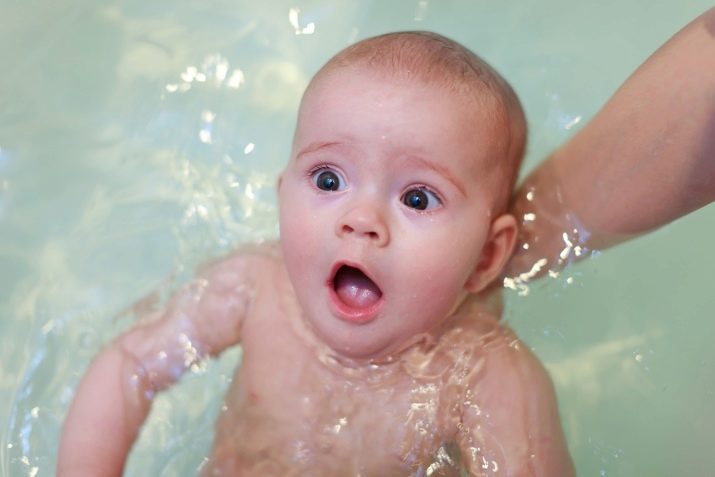
Alarming symptoms in children should include refusal to swim in the river, sea, refusal to wash in whole or in parts (for example, fear of washing your hair), refusal to learn to swim. If a home conversation does not help, you need to see a specialist.









How happy I am that I got rid of the fear of contact with water! In my opinion, this phobia is the most terrible! You cannot wash or even simply wash, let alone go to the sea or go to a lake or river. I have suffered with this phobia for more than 2 years. She attended both psychologists and psychotherapists. Only thanks to them I found peace and a truly fulfilling life.